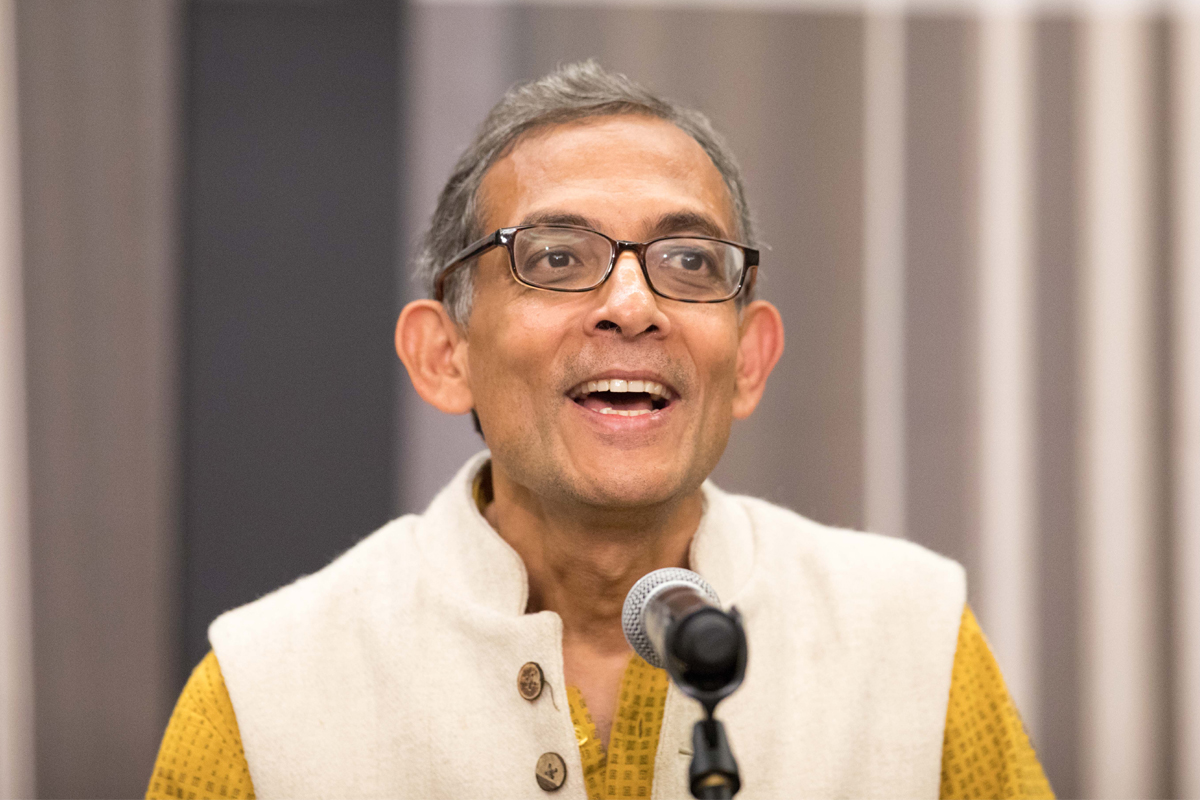Nobel Laureate Abhijit Vinayak Banerjee has gone far beyond the rather simplistic suggestion he had advanced to Mamata Banerjee a month ago ~ a ghoti of water and Dettol as an immediate safeguard against coronavirus. With a robust recommendation on Tuesday, he has emitted a critical signal to the political class, one that is as valid for India as it is for the rest of the world, including his present country of residence.
In a denunciation of the political class ~ that can scarcely think beyond serial lockdowns ~ he has been remarkably explicit with his argument that it would be “disastrous” to imagine that a “strong leader” is needed to address the coronavirus pandemic.
Advertisement
He has implicitly underlined the role of the economist (post Covid-19), much like the role of the medical fraternity (during Covid-19). He has in effect debunked what he calls the “strongman theory”, couched in the caveat that “if anyone wanted to believe in this theory, this is the time to disabuse themselves”.
If India is held up as a case-study, the political class has been at sixes and sevens both in tackling Covid-19 and the homeward journey of the migrants, which is said to have surpassed the exodus of people in the wake of Partition (1947). The migrant’s ticket to ride is a classic instance of bumbling governance, for which neither the Centre nor the states can evade responsibility.
His emphasis on the “greater involvement” of states and the lower structures of governance is of a piece with the certitudes of the federal construct. It is quite another story that West Bengal’s panchayati raj, the flagship achievement of the Left in the 1980s, has been virtually reduced to irrelevance over time. It is all very well for the political masters to hold forth on economic revival; but of an attempt to “aggressively address” what he calls “demand-related concerns”, there is little or no evidence.
Hence perhaps the violence that has targeted ration shops in rural Bengal. He has echoed the arguments advanced in Poor Economics, which he has co-authored with his Nobel Laureate wife, Esther Dufflo. Hence also the prescription on cash assistance to the “bottom 60 per cent of the population” in addition to a stimulus package from the government. Banerjee has refuted the perception in certain quarters, i.e. strong leaders can take on this virus.
Not quite, going by the examples of the United States and Brazil ~ “These two countries are messing up right and left. There are two strongmen behaving like… pretending like they understand anything. But even what they say every day is kind of laughable”; arguably, Donald Trump’s “disinfectant injection” or “just a flu”, in the manner of Brazil’s President, Jair Bolsonaro.
Imperative, therefore, is the need to “avoid a chain of bankruptcies”. “The other is demand shortfall, and getting some cash into the hands of the population is the best way to kickstart the economy”. An economic lockdown, therefore, cannot be in the realm of present indefinite. Remarkably appropriate, therefore, are the suggestions.











